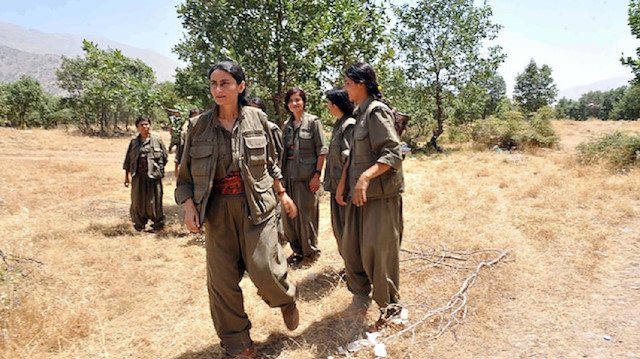
The terror group, which occupies northern Syria, also banned Arabic and declared Kurdish the official language
The Kurdistan Workers’ Party (PKK), which previously arrested teachers who refused to teach the syllabus outlined by the terror group, has now banned the wearing of the hijab (headscarf) by students and teachers.
The PKK published a notice in which it announced that students attending schools in areas it occupies would have to wear uniforms.
The terrorist organization banned usage of the Arabic alphabet and declared Kurdish the official language in the areas it occupies.
The move has garnered a reaction from the public, and some parents showed their anger by demonstrating at various schools.
Meanwhile, attempts by the U.S. to show the People’s Protection Units (YPG) as separate and different from the PKK continues.
Washington's new special envoy to Syria and former Ankara ambassador James Jeffrey said last week during a teleconference that the U.S.'s position on the PKK was "clear" and that it did not classify the YPG as a terror organization like the PKK.
The U.S has supplied the Democratic Union Party (PYD) terror organization and its armed wing, the YPG, with more than 5,000 truckloads of weapons to allegedly use in the fight against Daesh, despite Ankara’s warnings that they are the Syrian offshoots of the PKK terror organization.
Following U.S. orders, the group has removed posters of Abdullah Öcalan, the PKK ringleader, and other symbols related to the PKK in Manbij and Tel Abayd.
Some tribes that had enough of the terror group’s oppression raided a PKK checkpoint in Manbij and neutralized five terrorists.
Tensions have also flared in Raqqa, where the PKK declared a state of emergency in order to keep up pressure on the public. Limitations have been imposed on entering and leaving the city.
The PKK is listed as a terrorist organization by Turkey, the European Union and the United States. The PKK has been conducting armed violence in the southeastern part of Turkey since 1984. More than 40,000 people, mostly civilians, have been killed in the three-decade long conflict.








